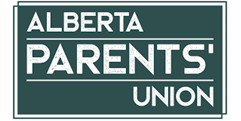
SCHOOL BOARDS NEED TO DO THEIR JOBS
“What do school boards even do?”
It’s a fair question.
School boards have repeatedly failed to represent the parents and communities they claim to serve.
Despite being elected to keep education responsive at the local level, too many trustees have acted more like political activists than advocates for students.
And time and again, the result has been the same - grand promises on the campaign trail, little to no follow-through in office.
While education in Alberta is ultimately the Province’s responsibility, that doesn’t mean school boards are powerless.
They still have real opportunities to influence how schools are run, if only they’d focus on doing their jobs.
Here are a few examples where school boards could have exercised local control but instead took no responsibility for what they actually could have done:
Curriculum
A stunning number of current school board trustees ran on “stopping the UCP curriculum.”
They didn't, of course, because school boards have no jurisdiction over curriculum.
Strictly speaking, “curriculum” only describes the loose standards that apply to all school divisions, and is solely provincial jurisdiction.
The school board's role is to choose whether and how to pilot the curriculum, so front-line teachers can give feedback to the Province.
If they opposed the curriculum, this was the feedback mechanism available to them to improve it.
All but four school divisions refused to pilot the proposed curriculum (before the last school board elections even occurred).
Only one school division (Fort Vermilion School Division) openly admitted that they were piloting the curriculum and seeking feedback from front-line professionals.
If this was such a priority for so many school board trustees, what did their divisions do to practically improve the curriculum?
For the vast majority of them, nothing.
Cellphones
The curriculum wasn't the only place where school divisions expressed “concerns” amounting to no action.
Unlike curriculum standards, though, student behaviour is squarely within school board responsibility.
The damage cellphones were causing to attention in classrooms was abundantly clear in 2023.
Major research was showing clear harms to learning, starting before COVID lockdowns and well separated from any other likely causes.
Several school boards even surveyed parents and teachers on the issue.
From parents, they heard, against the lazy stereotypes of parents common at the time, that families were reducing screen time at home.
Independent research seemed to back this up.
Parents especially expected screens not to be allowed when learning was supposed to be the priority.
Again, research showed the damage of even the constant alerts from other “learners'” phones.
From teachers, school boards heard that cellphone restrictions in their classroom were unenforceable without the support of the other adult school board employees in the building.
In the Spring of 2024, the Province was forced to step in.
They did their own survey, finding the same things the school boards found.
The Province, though, acted and gave principals guidelines and the authority they needed to keep cellphones out of classrooms.
Outside Materials in Classrooms
A remarkably similar story played out with parental concerns around outside materials in classrooms.
School boards could have easily required transparency with regard to the pre-existing resources teachers use in your kid's classroom.
Parents were clear in making our voices heard, through all the right channels, at the school board level.
No school board provided such transparency, and again, the Province stepped in.
School board jurisdiction is important.
In this case, the local solutions would have been vastly preferred.
But school boards are abdicating their responsibility.
Books in Libraries
Of course, inappropriate books in libraries are just the most recent school board responsibility that the province was forced to take action on.
Evidently, the Calgary Board of Education and the Edmonton Public School Board were overwhelmingly the problem areas here.
Parents had, of course, been clear about our expectations.
The Province even admitted they didn't have the authority to set policy here themselves, but they can direct school boards to do their jobs.
Importantly, they also forced the school boards to have policies allowing parents to directly provide input on age-inappropriate materials.
Potential Strike
Finally, class sizes and conditions are core school board responsibilities.
Provincial funding levels play a role, of course, and more money is easier to run schools with than less money.
But almost every school board has seen the number of central office management employees go up.
This, even while classroom employee numbers (especially education assistants, arguably the most cost-effective front-line employees) go down.
Front-line employees are crying out that class sizes and classroom conditions are the primary reason they are considering a strike.
School-division-based working groups on this topic were proposed in the rejected mediator’s recommendation, but there simply isn't much the Province can do about this at the bargaining table.
Now, Alberta students and their families face tangible harm, at least in part, because school boards didn't do their jobs.
Parents deserve better, more accountable, school trustees.
